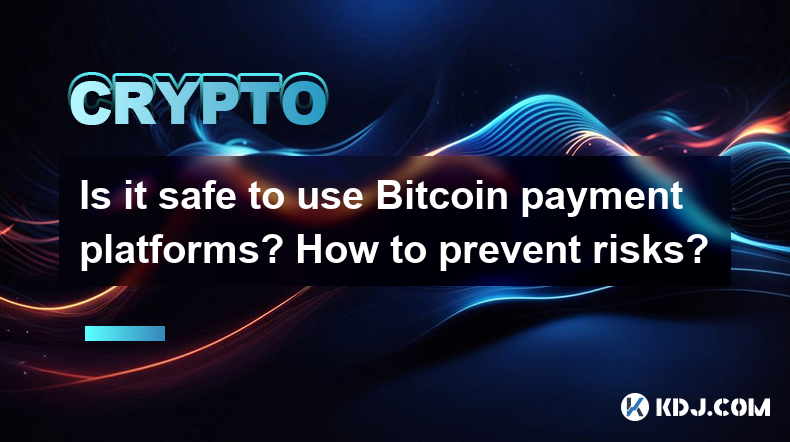-
 Bitcoin
Bitcoin $108,092.5658
-0.99% -
 Ethereum
Ethereum $2,546.4530
-1.12% -
 Tether USDt
Tether USDt $1.0000
0.01% -
 XRP
XRP $2.2676
0.12% -
 BNB
BNB $659.1616
-0.30% -
 Solana
Solana $148.8297
-1.97% -
 USDC
USDC $1.0000
0.02% -
 TRON
TRON $0.2874
-0.30% -
 Dogecoin
Dogecoin $0.1676
-3.64% -
 Cardano
Cardano $0.5765
-1.73% -
 Hyperliquid
Hyperliquid $37.2069
-6.18% -
 Bitcoin Cash
Bitcoin Cash $497.9918
-0.10% -
 Sui
Sui $2.8427
-2.26% -
 Chainlink
Chainlink $13.2689
-2.06% -
 UNUS SED LEO
UNUS SED LEO $9.0541
0.15% -
 Stellar
Stellar $0.2487
-0.92% -
 Avalanche
Avalanche $17.7710
-3.09% -
 Shiba Inu
Shiba Inu $0.0...01167
-1.28% -
 Toncoin
Toncoin $2.7488
-2.80% -
 Hedera
Hedera $0.1559
-2.28% -
 Litecoin
Litecoin $85.8945
-2.48% -
 Monero
Monero $316.0985
-2.09% -
 Dai
Dai $1.0001
0.02% -
 Polkadot
Polkadot $3.3481
-1.83% -
 Ethena USDe
Ethena USDe $1.0000
0.00% -
 Bitget Token
Bitget Token $4.2910
-3.04% -
 Uniswap
Uniswap $7.4131
-0.09% -
 Aave
Aave $280.9266
-2.67% -
 Pepe
Pepe $0.0...09816
-3.18% -
 Pi
Pi $0.4557
-2.29%
Is it safe to use Bitcoin payment platforms? How to prevent risks?
Apr 21, 2025 at 06:49 pm

Is it safe to use Bitcoin payment platforms? How to prevent risks?
Using Bitcoin payment platforms can be both convenient and efficient, but it also comes with its own set of risks. Understanding these risks and learning how to mitigate them is crucial for anyone looking to use these platforms safely. This article will delve into the safety aspects of Bitcoin payment platforms and provide detailed guidance on how to prevent potential risks.
Understanding the Risks of Bitcoin Payment Platforms
Bitcoin payment platforms, like any other financial service, carry inherent risks. Some of the most common risks include:
- Scams and Fraud: The cryptocurrency space is rife with scams, from Ponzi schemes to fake exchanges. Users can fall victim to fraudulent websites that mimic legitimate platforms.
- Hacking and Security Breaches: Bitcoin platforms are attractive targets for hackers due to the high value of the assets they hold. Security breaches can lead to the loss of funds.
- Regulatory Risks: The regulatory environment for cryptocurrencies is still evolving. Changes in regulations can impact the operation of Bitcoin payment platforms.
- Technical Glitches: Software bugs and system failures can result in loss of funds or delays in transactions.
Understanding these risks is the first step toward using Bitcoin payment platforms safely.
Choosing a Reputable Bitcoin Payment Platform
Selecting a reputable Bitcoin payment platform is crucial for minimizing risks. Here are some factors to consider when choosing a platform:
- Reputation and Reviews: Look for platforms with a strong reputation and positive user reviews. Websites like Trustpilot and forums like Reddit can provide valuable insights.
- Security Features: Ensure the platform offers robust security measures such as two-factor authentication (2FA), cold storage for funds, and encryption.
- Regulatory Compliance: Choose platforms that comply with relevant regulations and are licensed where applicable.
- Customer Support: A platform with responsive and helpful customer support can be a lifesaver in case of issues.
By carefully evaluating these factors, you can significantly reduce the risks associated with using Bitcoin payment platforms.
Implementing Strong Security Measures
Implementing strong security measures is essential for protecting your funds on Bitcoin payment platforms. Here are some steps you can take:
- Use Two-Factor Authentication (2FA): Enable 2FA on your account to add an extra layer of security. This typically involves receiving a code on your mobile device that you must enter to access your account.
- Secure Your Private Keys: Never share your private keys with anyone. Store them in a secure place, such as a hardware wallet, which is not connected to the internet.
- Use Strong Passwords: Use a unique and strong password for your Bitcoin payment platform account. Consider using a password manager to generate and store complex passwords.
- Regularly Update Software: Keep your devices and the software used to access the platform up to date to protect against vulnerabilities.
By following these security measures, you can significantly enhance the safety of your Bitcoin transactions.
Monitoring and Managing Your Transactions
Monitoring and managing your transactions is another critical aspect of using Bitcoin payment platforms safely. Here are some practices to adopt:
- Regularly Check Your Account: Monitor your account regularly to detect any unauthorized transactions or suspicious activities.
- Use Transaction Alerts: Set up transaction alerts to receive notifications whenever there is activity on your account. This can help you quickly identify and respond to potential issues.
- Keep Records: Maintain detailed records of your transactions, including dates, amounts, and recipient addresses. This can be helpful for tracking and resolving any disputes.
- Be Cautious with Third Parties: Be wary of sharing your account information with third parties. Only use trusted services and always verify the legitimacy of any third-party service before engaging with them.
By actively monitoring and managing your transactions, you can mitigate risks and ensure the safety of your funds.
Educating Yourself About Bitcoin and Scams
Educating yourself about Bitcoin and common scams is an ongoing process that can greatly enhance your safety when using Bitcoin payment platforms. Here are some key areas to focus on:
- Understand Bitcoin Basics: Learn about how Bitcoin works, including blockchain technology, wallets, and transactions. This knowledge can help you make informed decisions.
- Stay Informed About Scams: Familiarize yourself with common scams in the cryptocurrency space, such as phishing emails, fake exchanges, and Ponzi schemes. Websites like the Better Business Bureau and the Federal Trade Commission can provide valuable information.
- Join Online Communities: Participate in online communities and forums dedicated to cryptocurrencies. These can be excellent resources for learning from others' experiences and staying updated on the latest developments.
- Read News and Updates: Regularly read news and updates related to Bitcoin and the broader cryptocurrency market. This can help you stay aware of potential risks and regulatory changes.
By continuously educating yourself, you can better navigate the risks associated with Bitcoin payment platforms.
Frequently Asked Questions
Q: Can I recover my funds if a Bitcoin payment platform gets hacked?
A: Recovery of funds after a hack depends on various factors, including the platform's security measures and insurance policies. Some platforms have insurance to cover losses, while others may not. It's important to choose platforms with strong security and insurance to increase the likelihood of recovering funds in case of a hack.
Q: Are there any legal protections for users of Bitcoin payment platforms?
A: Legal protections for users of Bitcoin payment platforms vary by jurisdiction. Some countries have specific regulations that provide protections for cryptocurrency users, while others do not. It's essential to understand the legal framework in your country and choose platforms that comply with relevant regulations.
Q: How can I verify the legitimacy of a Bitcoin payment platform?
A: To verify the legitimacy of a Bitcoin payment platform, you can check for the following: positive user reviews, regulatory compliance, strong security features, and responsive customer support. Additionally, you can look for any red flags such as poor website design, lack of transparency, or reports of scams associated with the platform.
Q: What should I do if I suspect fraudulent activity on my Bitcoin payment platform account?
A: If you suspect fraudulent activity on your account, take immediate action by changing your password, enabling 2FA if not already done, and contacting the platform's customer support. Report the incident to the platform and, if necessary, to the relevant authorities. Keep detailed records of all communications and actions taken.
Clause de non-responsabilité:info@kdj.com
Les informations fournies ne constituent pas des conseils commerciaux. kdj.com n’assume aucune responsabilité pour les investissements effectués sur la base des informations fournies dans cet article. Les crypto-monnaies sont très volatiles et il est fortement recommandé d’investir avec prudence après une recherche approfondie!
Si vous pensez que le contenu utilisé sur ce site Web porte atteinte à vos droits d’auteur, veuillez nous contacter immédiatement (info@kdj.com) et nous le supprimerons dans les plus brefs délais.
-
 M Échangez maintenant
M Échangez maintenant$0.1995
30.31%
-
 CRO Échangez maintenant
CRO Échangez maintenant$0.0942
16.18%
-
 VVS Échangez maintenant
VVS Échangez maintenant$0.0...02147
15.14%
-
 SHX Échangez maintenant
SHX Échangez maintenant$0.0117
15.12%
-
 LAUNCHCOIN Échangez maintenant
LAUNCHCOIN Échangez maintenant$0.1331
14.45%
-
 HSK Échangez maintenant
HSK Échangez maintenant$0.6708
13.82%
- Kraken, aile arrière et Memecoins: une balade sauvage au Grand Prix de Singapour!
- 2025-07-09 00:50:12
- Le rallye d'audit d'Ethereum Wall Street et Ruvi Ai: un cocktail crypto
- 2025-07-09 00:55:12
- Onyxcoin (XCN) contre Solana (Sol): un pari prometteur dans le jeu de la cryptographie?
- 2025-07-09 00:30:12
- Pari audacieux de Corewave: comment l'IA est de remodeler l'exploitation bitcoin
- 2025-07-09 00:30:12
- Flashback IPO Coinbase (Coin): le rallye est-il surpris ou en train de commencer?
- 2025-07-08 22:50:12
- Bitcoin Price, Elon Musk et Btcbull: un trifecta haussier?
- 2025-07-09 00:10:12
Connaissances connexes

How to customize USDT TRC20 mining fees? Flexible adjustment tutorial
Jun 13,2025 at 01:42am
<h3>Understanding USDT TRC20 Mining Fees</h3><p>Mining fees on the TRON (TRC20) network are essential for processing transactions. U...

USDT TRC20 transaction is stuck? Solution summary
Jun 14,2025 at 11:15pm
<h3>Understanding USDT TRC20 Transactions</h3><p>When users mention that a USDT TRC20 transaction is stuck, they typically refer to ...

How to cancel USDT TRC20 unconfirmed transactions? Operation guide
Jun 13,2025 at 11:01pm
<h3>Understanding USDT TRC20 Unconfirmed Transactions</h3><p>When dealing with USDT TRC20 transactions, it’s crucial to understand w...

How to check USDT TRC20 balance? Introduction to multiple query methods
Jun 21,2025 at 02:42am
<h3>Understanding USDT TRC20 and Its Importance</h3><p>USDT (Tether) is one of the most widely used stablecoins in the cryptocurrenc...

What to do if USDT TRC20 transfers are congested? Speed up trading skills
Jun 13,2025 at 09:56am
<h3>Understanding USDT TRC20 Transfer Congestion</h3><p>When transferring USDT TRC20, users may occasionally experience delays or co...

The relationship between USDT TRC20 and TRON chain: technical background analysis
Jun 12,2025 at 01:28pm
<h3>What is USDT TRC20?</h3><p>USDT TRC20 refers to the Tether (USDT) token issued on the TRON blockchain using the TRC-20 standard....

How to customize USDT TRC20 mining fees? Flexible adjustment tutorial
Jun 13,2025 at 01:42am
<h3>Understanding USDT TRC20 Mining Fees</h3><p>Mining fees on the TRON (TRC20) network are essential for processing transactions. U...

USDT TRC20 transaction is stuck? Solution summary
Jun 14,2025 at 11:15pm
<h3>Understanding USDT TRC20 Transactions</h3><p>When users mention that a USDT TRC20 transaction is stuck, they typically refer to ...

How to cancel USDT TRC20 unconfirmed transactions? Operation guide
Jun 13,2025 at 11:01pm
<h3>Understanding USDT TRC20 Unconfirmed Transactions</h3><p>When dealing with USDT TRC20 transactions, it’s crucial to understand w...

How to check USDT TRC20 balance? Introduction to multiple query methods
Jun 21,2025 at 02:42am
<h3>Understanding USDT TRC20 and Its Importance</h3><p>USDT (Tether) is one of the most widely used stablecoins in the cryptocurrenc...

What to do if USDT TRC20 transfers are congested? Speed up trading skills
Jun 13,2025 at 09:56am
<h3>Understanding USDT TRC20 Transfer Congestion</h3><p>When transferring USDT TRC20, users may occasionally experience delays or co...

The relationship between USDT TRC20 and TRON chain: technical background analysis
Jun 12,2025 at 01:28pm
<h3>What is USDT TRC20?</h3><p>USDT TRC20 refers to the Tether (USDT) token issued on the TRON blockchain using the TRC-20 standard....
Voir tous les articles

























































































